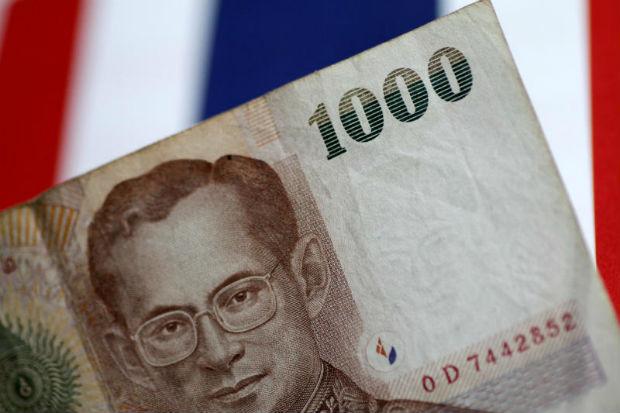Baht pits Bank of Thailand against government on rate cut
A public rift between Thailand’s central bank and government on interest rates shows just how much of a dilemma the baht has become for the economy.
The Finance Ministry is pushing the Bank of Thailand to cut interest rates to stimulate growth, in light of the strength of the currency and low inflation. That’s clashing with the bank’s aims of minimising financial instability and curbing household debt levels by keeping rates steady.
With days to go before the next interest-rate decision on Sept 27, economists are watching the dispute closely. The Bank of Thailand has so far pushed back against calls to cut its benchmark interest rate from a near record-low of 1.5%, where it’s been since 2015, intervening in the currency market instead and curbing the supply of short-term bonds to limit the baht’s gains.
“The BOT has already been clear about its stance that there is no need to ease,” Euben Paracuelles, senior economist for Southeast Asia at Nomura Holdings Inc. in Singapore, said in an email. “Cutting the policy rate now would go against the grain of BOT’s priority to minimise financial stability risks, not to mention that it will be seen as undermining its independence.”
No Change
All but one economist in a Bloomberg survey predict no change in the policy rate until the end of 2017. ING Groep NV forecast a 25 basis-point cut at next week’s meeting.
The baht is up more than 8% against the dollar this year, the best performer in Asia, underpinned by foreign inflows and record reserves of almost $200 billion. For export-reliant Thailand, the currency’s gains threaten to hurt the economy at a time when private investment and consumer demand remain sluggish.
The public disagreement stemmed from comments on Sept 11 by Somchai Sujjapongse, permanent secretary at the Finance Ministry, in which he said the government “would like to see the central bank use monetary policy to support us”. He added that there shouldn’t be a concern that lower interest rates will boost inflation.
Bank of Thailand Governor Veerathai Santiprabhob on Monday defended the bank’s stance, saying he didn’t feel pressured by the government. Policy makers at their next meeting will be “busy considering many different policies and measures, whether it’s about the topics discussed in the news or other monetary policies,” he said.
The Finance Ministry couldn’t immediately be reached Monday for comment on the relationship with the monetary authority.
The public tensions have been a distraction for the central bank ahead of next week’s meeting, but aren’t yet a real cause for concern, said Khoon Goh, head of Asia research at Australia & New Zealand Banking Group in Singapore.
“Central banks in this region are given some level of independence,” Mr Goh said. “There might be disagreements in views from time to time.”
While financial markets would favour a sacrosanct independence for central bankers, “for now, all we can do is continue to monitor how the robust exchanges between the two organisations play out.”
If private investment continues to under-perform, policy makers may be forced to change tack.
Gundy Cahyadi, an economic and currency researcher at DBS Group Holdings Ltd in Singapore, said officials are “really running out of options now” and unlike the recent string of unanimous monetary policy decisions, there may be a few detractors from the no-change vote as early as next week.
“They probably need to do more to try to dampen the expectations for the baht to strengthen further,” he said.
Source: http://www.bangkokpost.com/business/news/1327155/baht-pits-bank-of-thailand-against-government-on-rate-cut


 Thailand
Thailand




